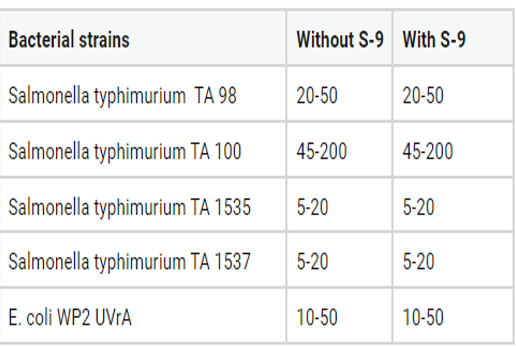Abstract
Cancer is the second deadliest cause among all ailments even after the development of modern research and technologies. This leads in search of alternative sources of treating cancer. Herbal formulations were considered to be the rich sources of treating agents for most of the ailments from agelong days. Bacterial Reverse Mutation method of evaluation is one among the preliminary phase incorporated to assess the mutagenic potential of herbal formulations. The selected Polyherbal Formulation (PF3) of Annona Squamosa, Zingiber Officinalis, and Triticum Aestivum in 1:2:3 ratio was evaluated for its mutagenic potential. The results with method I - Plate incorporation and method II - Preincubation indicate that, the PF3 extract at a maximum dose of 5 mg/plate did not cause a positive increase in the mean number of revertant colonies per plate with any of the tester strains either in the presence (+S9) or absence of metabolic activation (-S9). The rich flavonoids and other phytoconstituents of the formulation may be responsible for antimutative properties with the possible inactivation of mutagens or by interfering in the process of mutagenisis. The higher studies were needed to be proven further to authenticate the mutagenic potentialities.
Full text article
Authors

This work is licensed under a Creative Commons Attribution-NonCommercial-NoDerivatives 4.0 International License.

